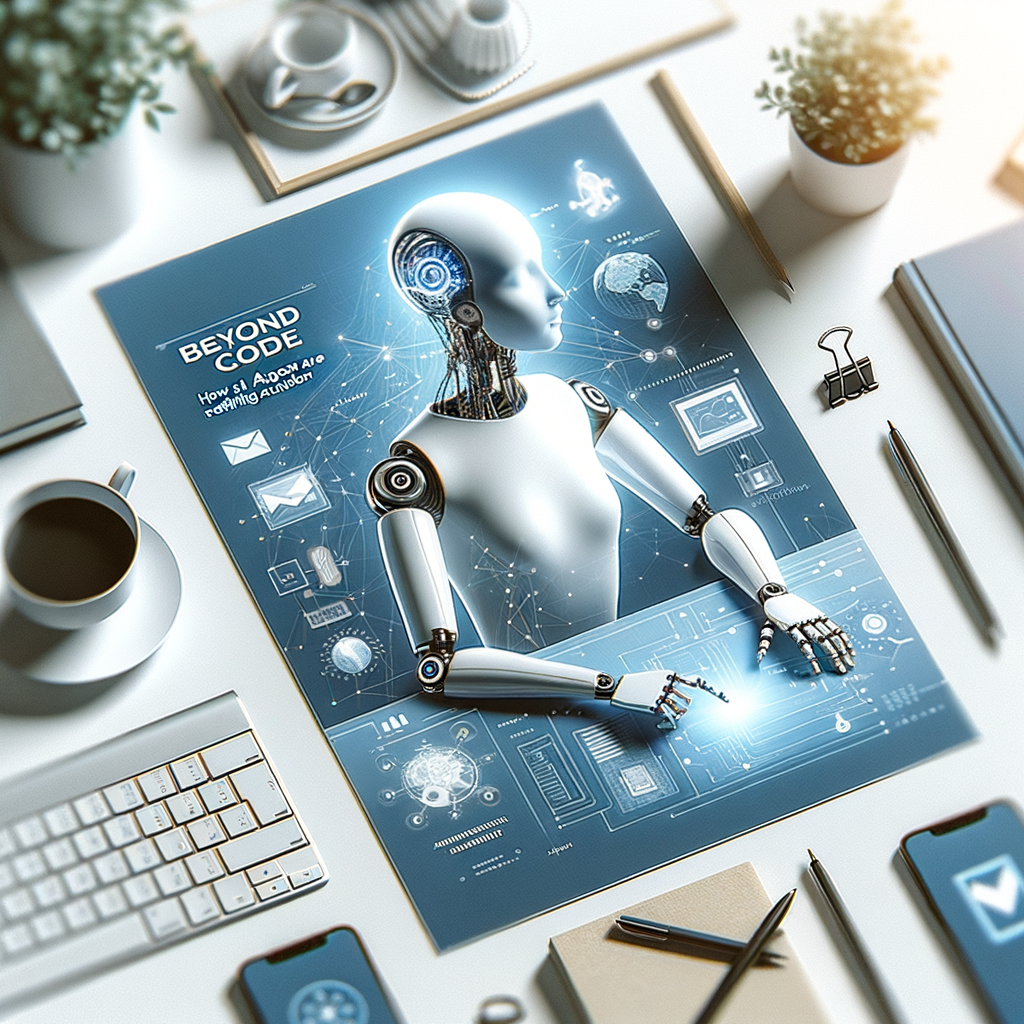
Beyond Code: How AI Agents Are Redefining Business Automation
Discover how AI agents are revolutionizing business automation beyond traditional coding practices. This blog explores the innovative applications of AI in automating complex business processes, enhancing efficiency, and creating opportunities for growth across various industries.
Beyond Code: How AI Agents Are Redefining Business Automation
Introduction
The rapid advancement of artificial intelligence (AI) has paved the way for significant innovations in various sectors, particularly in business automation. Traditional automation requires extensive coding and integration efforts, often resulting in time-consuming processes and increased costs. However, with the advent of AI agents, businesses are beginning to automate complex tasks and streamline operations without the need for extensive programming.
AI agents, equipped with self-learning capabilities, can understand, analyze, and respond to data more intelligently than conventional systems. They leverage machine learning algorithms and natural language processing to interpret information and make decisions autonomously. This blog will delve into the role of AI agents in transforming business automation, highlighting their applications, benefits, and future potential.
The Evolution of Business Automation
Traditional Automation: A Brief Overview
Business automation has evolved significantly over the years, from simple script-based tasks to more complex custom software solutions. Traditional automation often involves substantial manual effort, with developers writing customized scripts to automate repetitive tasks. Though effective, these methods can be resource-intensive and require regular maintenance.
AI-Driven Automation: A New Era
AI-driven automation introduces intelligent agents capable of learning and adapting over time. Unlike traditional scripts that follow a fixed set of instructions, AI agents utilize data inputs and machine learning models to make informed decisions. This capability allows them to manage more dynamic processes and adapt to changes in real-time.
How AI Agents Work
Understanding AI Agents
AI agents operate using a combination of machine learning techniques, neural networks, and natural language processing. They are designed to interact with both structured and unstructured data, identifying patterns and extracting meaningful insights. By leveraging these technologies, AI agents can autonomously perform tasks that traditionally required human intervention.
Key Features and Capabilities
- Autonomous Learning: AI agents learn from their environment and experiences, improving decision-making processes over time.
- Data Analysis: They process vast amounts of data, identifying trends and providing actionable insights.
- Problem Solving: Equipped with robust algorithms, they solve complex problems and adapt to new challenges efficiently.
- Natural Language Processing: AI agents understand and communicate using natural language, facilitating interaction with users.
Applications of AI Agents in Business Automation
Enhancing Customer Service
AI agents are transforming customer service by providing personalized, instantaneous support. Chatbots and virtual assistants powered by AI streamline customer interactions, offering solutions without human intervention. These agents understand natural language queries and provide accurate responses, improving customer satisfaction and reducing support costs.
Streamlining Supply Chain and Logistics
In the supply chain and logistics sector, AI agents optimize operations by predicting demand, managing inventory, and ensuring timely deliveries. Their ability to analyze real-time data allows businesses to make proactive decisions, reducing operational costs and enhancing efficiency.
Financial Management and Risk Assessment
AI agents play a pivotal role in financial sectors by automating processes such as risk assessment, fraud detection, and investment management. They analyze financial data to identify potential risks and opportunities, providing businesses with a competitive edge.
Marketing and Sales Automation
AI-driven marketing and sales automation utilize agents to analyze consumer behavior and deliver targeted campaigns. They personalize marketing strategies, ensuring higher engagement rates and improved conversion opportunities.
Benefits of Implementing AI Agents
- Cost Effectiveness: AI agents reduce the need for extensive human resources, lowering operational costs.
- Scalability: These agents scale seamlessly with business growth, handling increased workloads efficiently.
- Improved Accuracy: AI agents minimize human errors, ensuring data accuracy and quality.
- Enhanced Agility: Businesses become more responsive to market changes due to real-time data processing and analysis by AI agents.
Challenges and Considerations
Despite the advantages, implementing AI agents poses challenges:
- Data Privacy: Ensuring data security and compliance with regulations is paramount.
- Integration Issues: Seamlessly integrating AI agents with existing systems can be complex.
- Initial Costs: The upfront investment in AI technology can be substantial.
- Skill Gap: Developing and maintaining AI agents require specialized skills, demanding workforce training.
Future Prospects
The future of AI in business automation looks promising, with AI agents playing an increasingly crucial role in driving innovation. As technology advances, AI agents are expected to become more sophisticated, offering even greater efficiencies and operational enhancements.
Conclusion
AI agents are redefining business automation beyond traditional coding methodologies. By harnessing the power of AI, organizations can automate complex processes, enhance decision-making, and create new business opportunities. While challenges exist, the potential benefits outweigh the concerns, making AI agents an essential asset for future-ready businesses.